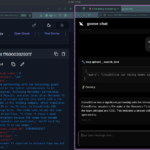🦀 Self vs self in Rust
If you’re learning Rust, few things feel more confusing at first than the difference between Self and self. They look similar, they sound similar, and they often appear right next to each other. But once you internalize one simple rule, the confusion almost completely disappears. The Rule of Thumb (Memorize This) If a function does […]









